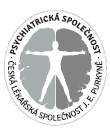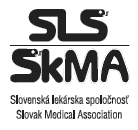Česká a slovenská psychiatrie

Časopis
Psychiatrické společnosti ČLS JEP
a Psychiatrickej spoločnosti SLS
souborný článek / review article
SYNDROM NOČNÍHO JEDLICTVÍ
NIGHT EATING SYNDROME
Faltus F.
Psychiatrická klinika 1. LF UK a VFN, Praha,
přednosta prof. MUDr. J. Raboch, DrSc.
přednosta prof. MUDr. J. Raboch, DrSc.
SOUHRN
Syndrom nočního jedlictví byl zařazen mezi psychogenní poruchy příjmu potravy již v roce 1955. V roce 1991 došlo k rozdělení tohoto syndromu na dva subtypy: syndrom nočního jedlictví, u něhož je primární porucha příjmu potravy a syndrom poruchy spánku s nočním jedlictvím, u něhož je primární porucha spánku (parasomnie). Podstatný rozdíl mezi oběma syndromy spočívá v tom, že u prvého je si pacient vědom svého nočního přejídání, kdežto u druhého jedná v noci ve stavu porušeného vědomí a na své chování se druhý den nepamatuje nebo jen útržkovitě. V roce 2002 Anerican Academy of Sleep Medicine odlišila od syndromu nočního jedlictví syndrom nočního jedlictví a pití. U syndromu nočního jedlictví převládají v etiologii více faktory enviromentální [24], kdežto u syndromu nočního jedlictví s poruchou spánku faktory biologické a genetické. Společný výskyt obou poruch se odhaduje na 1 až 2 % v populaci. Tam, kde je prvotní porucha jedlictví, se uplatňuje v léčbě úspěšněji psychoterapie, u prvotní poruchy spánku s jedlictvím více farmakoterapie, eventuelně současně s psychoterapií. Doporučuje se věnovat v budoucnosti této poruše více pozornosti.
Klíčová slova: syndrom nočního jedlictví, syndrom poruchy spánku s nočním jedlictvím, neurotransmitéry, hormony.
SUMMARY
Faltus F.: Night Eating Syndrome
There are at least two problems, that involved disordered eating at night. Night Eating Syndrome (NES) and Nocturnal sleep - related eating disorder (NSRED). Night eating syndrome is considered as a dissomnia. It is really an eating disorder; people eat when they are conscious. NES is characterized by the clinical features of morning anorexia, evening hyperphagia, awaking followed by nocturnal food ingestions.
NSRED is classified in the International Classification of sleep Disorders as a parasomnia. It is thought to be a sleep disorder, not an eating disorder. During episodes of NSRED people are not conscious. They have no memories to having done when they wake or they have only fragmentary memories. In some cases, have histories of alcoholism, drug abuse and other sleep disturbances.
Nearly all sleep eaters show a preference for food high in carbohydrates and fat. One to two percent of the general populations are affected with these. NES and NSRED are more common than this generally recognize. Increase stress and fluctuations in hormone levels may be ethiological factor. Changes in the circadian rhythm by an attenuation in the nocturnal decrease of the plasma concentration of melatonin and leptin and an increase of cortisol have been described.
Treatment of nocturnal eating behavior begins with a clinical interview and a night or two at a sleep disorders centre where brain activity is monitored. NSRED does tend do respond well to treatment with medications. Sleeping pills should be avoided. Exercise and relaxation training help NES sufferers overcome insomnia and restore natural sleep cycle.
Key words: Night Eating Syndrome, Night Sleep Related Eating Disorder, neurotransmitters, hormone.





